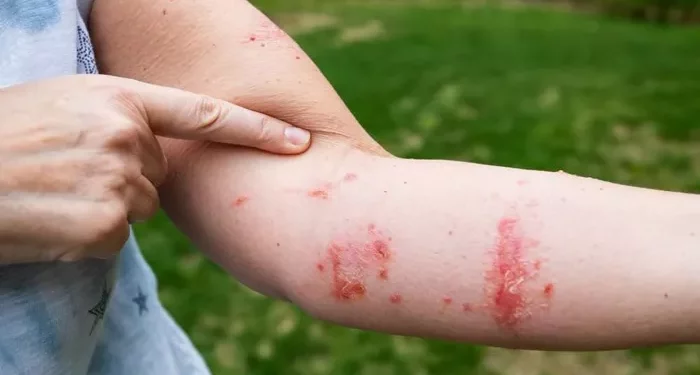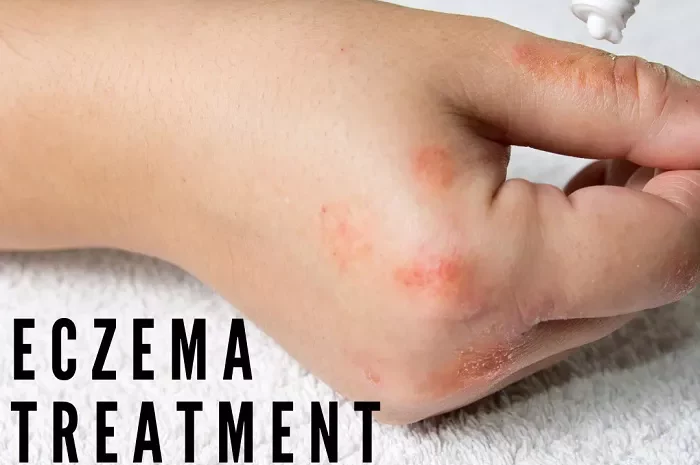Chronic dermatitis is a long-lasting skin condition that causes inflammation, redness, and irritation. It affects many people, and understanding it is essential for effective management.
Types of Chronic Dermatitis
Chronic dermatitis has several forms, each with unique characteristics:
Atopic Dermatitis: Commonly known as eczema, this type often begins in childhood. It is linked to allergies and asthma. The skin becomes dry, itchy, and inflamed.
Contact Dermatitis: This occurs when the skin reacts to a substance. It can be allergic or irritant. Allergic contact dermatitis results from exposure to allergens like poison ivy. Irritant contact dermatitis happens due to substances like soaps or detergents.
Seborrheic Dermatitis: This condition leads to greasy, scaly patches, often on the scalp and face. It may be associated with yeast overgrowth.
Nummular Dermatitis: This presents as circular, coin-shaped patches on the skin. It often appears after skin injuries or dry skin.
Causes of Chronic Dermatitis
The exact causes of chronic dermatitis vary by type but include:
Genetics: A family history of skin conditions increases the risk.
Environmental Factors: Irritants, allergens, and climate can trigger flare-ups.
Immune System: An overactive immune response can cause skin inflammation.
Stress: Emotional stress can worsen symptoms.
Symptoms of Chronic Dermatitis
Symptoms can differ based on the type but commonly include:
Redness: The affected skin may appear red and inflamed.
Itching: Intense itching is a hallmark of dermatitis.
Dryness: Skin often becomes dry and scaly.
Swelling: Inflammation can lead to swelling in the affected areas.
Crusting or Oozing: In severe cases, blisters may form and ooze.
Diagnosis of Chronic Dermatitis
A dermatologist usually diagnoses chronic dermatitis through:
Medical History: Discussing symptoms, triggers, and family history.
Physical Examination: Inspecting the skin to identify patterns.
Patch Testing: For contact dermatitis, this can identify specific allergens.
Treatment Options
Managing chronic dermatitis focuses on relieving symptoms and preventing flare-ups. Treatment options include:
1. Topical Treatments
Corticosteroids: These reduce inflammation and itching. They come in creams or ointments.
Calcineurin Inhibitors: Non-steroidal options like tacrolimus can help manage inflammation without side effects of steroids.
Moisturizers: Keeping the skin hydrated is crucial. Use fragrance-free lotions or creams regularly.
2. Oral Medications
In severe cases, doctors may prescribe oral medications:
Antihistamines: These help relieve itching, especially at night.
Corticosteroids: Systemic steroids can manage severe inflammation.
Immunosuppressants: Medications like cyclosporine can reduce immune response.
3. Phototherapy
This treatment uses ultraviolet light to reduce symptoms. It’s effective for certain types of dermatitis but requires supervision.
4. Lifestyle Modifications
Making lifestyle changes can significantly impact dermatitis:
Avoid Triggers: Identify and avoid irritants or allergens that worsen symptoms.
Stress Management: Techniques like yoga or meditation can help.
Gentle Skin Care: Use mild soaps and avoid hot showers that dry the skin.
Living with Chronic Dermatitis
Living with chronic dermatitis can be challenging. Here are tips for better management:
Stay Informed: Learn about your condition and effective treatments.
Skin Care Routine: Establish a consistent routine to keep skin healthy.
Support Groups: Connecting with others can provide emotional support.
When to See a Doctor
Consult a healthcare professional if:
- Symptoms worsen despite treatment.
- You experience severe itching or pain.
- The condition affects your daily life or mental health.
Conclusion
Chronic dermatitis is a common but manageable skin condition. Understanding its types, causes, symptoms, and treatment options is essential for effective care. With proper management, individuals can lead comfortable and fulfilling lives despite the challenges of chronic dermatitis. If you suspect you have chronic dermatitis, consult a healthcare professional for an accurate diagnosis and personalized treatment plan.
Related topics:


























